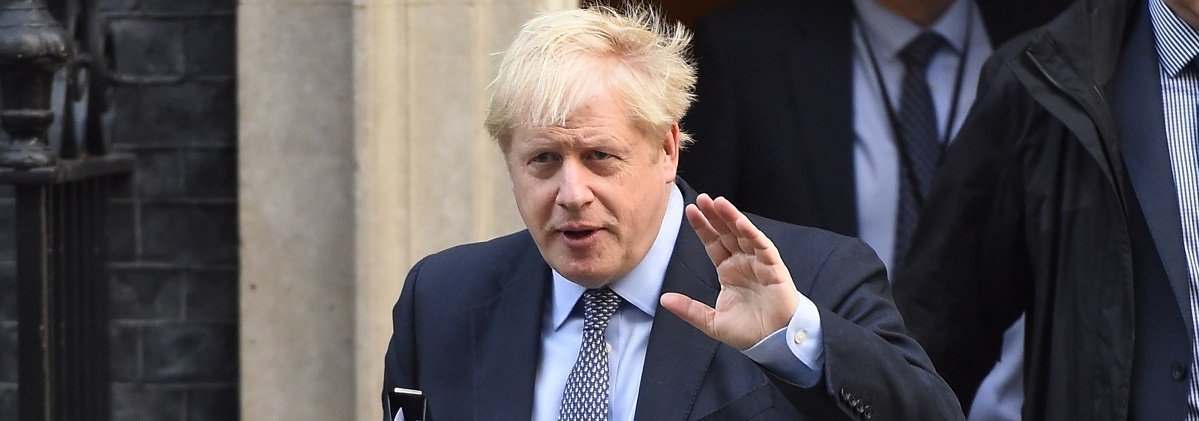Ben Elliot, the hitherto little-known, unelected co-chairman of the Conservative Party, has had a good week if he’s trying to up his profile. But that might be the last thing he wants - or at least not like this. Because he has got himself and his party embroiled in what looks like a growing political scandal. It’s emerged that he’s been arranging for very rich people to cough up £250,000 or more a year to party funds in return for monthly meetings with top ministers, notably Boris Johnson himself and the chancellor, Rishi Sunak. To many people this is evidence that the scandal of ‘cash for access’, which has such a long pedigree, has never been rooted out of our political system and is flourishing as never before. The Conservative Party denies all impropriety. It claims that secret meetings with very wealthy and very generous donors have no bearing on government policy. It points out that Labour also provides access to its leaders in return for large cheques. Few seem persuaded. And a new phrase – ‘access capitalism’ – has entered the political lexicon to describe how wealth is used to buy access to, and therefore influence on, government ministers. Should we be worried? And if we don’t like the idea that political parties should be dependent on wealthy individuals for much of their funding, how else should we pay for democracy?
Mr Elliot is used to creaming off large sums of money from very rich people and then giving them what they want. That, indeed, is his business. For years he has been running a firm called Quintessentially, which describes itself as a ‘concierge’ service for the rich. Clients pay a large annual fee in return for the company dealing with all those awkward, tiresome problems the very rich face. Problems such as getting a table at a restaurant that says it’s fully booked, or sorting out what you should give your wife for your anniversary because you haven’t the time (or the interest or imagination) to do it yourself, or making sure there’s a flock of flamingo adorning your private lake the evening you throw your summer party for four or five hundred of your closest friends. You get the idea. To run such a business you have to know how to pull strings and to do that you have to know an awful lot of people. Fortunately, Mr Elliot does: his uncle is the Prince of Wales.
The case could easily be made that there is nothing inherently wrong with such a business – if the rich are prepared to pay the fee and Mr Elliot’s firm can deliver, then what’s the problem? Some might object that it’s rather an in-your-face reminder of just how unequal the society we live in is, where the ‘little people’ wanting a rare celebratory meal at a posh restaurant can be turned away on the grounds that there’s no room at the inn, while the rich lot sail past the queue and are offered the supposedly unavailable best table in the joint. But what’s new about that? Money has always been the most helpful lubricant for getting what you want. It’s just a shame more people don’t have it.
But paying someone else to make your life run more smoothly is one thing; paying them to help you get the ear of the prime minister is quite another. And it is the blurring of the distinction between his jobs as boss of a concierge service for the rich and as co-chairman and chief fundraiser for the Tory Party that has caused Mr Elliot to emerge from the shadows and given the ‘cash for access’ scandal a new lease of life. For according to the
Financial Times, which broke the story, Mr Elliot seems to be running the party’s fundraising on much the same model as his concierge service: take a lot of money from rich businessmen and then give them what they want, in this case access to government ministers.
The paper quoted Mohammed Amersi, a telecoms millionaire and longstanding client of Quintessentially. He and his wife got themselves dinner with Prince Charles through Mr Elliot’s good offices. He said that a secretive club known as the Advisory Board, which is not referred to in Conservative Party literature, was ‘like the very elite Quintessentially clients membership: one needs to cough up £250,000 per annum or be a friend of Ben…” This then entitles ‘members’ to attend a monthly meeting with a senior minister, such as the Prime Minister or the Chancellor. According to the FT, at one such meeting last month ‘those present say the donors boxed the Prime Minister’s ears over the troubles in his cabinet as well as the economic direction of the country under his leadership. “They’re fed up with all this state intervention,” one party insider with knowledge of the discussion says. “The top donors are Thatcherite free-marketeers, and they have no qualms about giving Boris a piece of their mind.” It was Mr Amersi who coined the phrase ‘access capitalism’ to describe what is going on.
Even though the Conservative Party has been coy about the existence of the Advisory Board, they do not deny that it exists. Indeed they say it was up and running before Mr Johnson became party leader or Mr Elliot became its main fundraiser. What they do strongly deny, however, is that government policy is in any way affected by what is said at the meetings or that it is even the aim of those who have forked out so much money to attend them to do so. Heaven forbid! The party’s official line is that members attend because they are looking for ‘an update on the political landscape’. Sceptics may feel such innocent restraint does not quite square with the club’s name as an ‘advisory’ board, nor with reports of members boxing Johnson’s ears and giving him a piece of their mind.
The relationship between politicians and rich donors has always been murky. It’s obvious what the politicians want – the dosh of the wealthy to fund their political activities. But what the rich want in return has been less clear-cut and has varied. Such is the British obsession with class, status and titles, that politicians have usually been able to get their hands on the loot simply in exchange for titles. Going back at least to Lloyd George, if not further, it’s the Honours system which has kept the party political system financed. There’s been a lot of tut-tutting about this over the years, of course, but giving a donor a knighthood could be seen as fobbing him off rather than giving him influence: even a peerage, with the right to vote in the House of Lords, is hardly allowing someone to share the reins of power. It’s when giving cash buys access to power and that access creates the opportunity to lean on power that we should get worried. And that is what is alleged is happening through the Tory Party’s Advisory Board.
It’s not the the first time such buying of influence over government policy has been alleged. Within a few months of coming to power, Tony Blair almost lost it through the Ecclestone affair in which it was claimed that the previous million pound donation to the Labour Party by Bernie Ecclestone, the Formula One boss, had ‘bought’ his sport’s exemption from the ban on tobacco advertising at sports venues. Tony Blair vehemently denied there had been
any connection between the two, telling me in an interview, all Bambi-like, that people knew that he was ‘a straight kinda guy’ who would never do such a thing. But the exemption had to be dropped and the money given back.
And earlier this year, the property developer and donor, Richard Desmond, conveniently found himself at dinner sitting next to Robert Jenrick, the Communities Secretary and the minister with the ultimate say over planning issues, just at the moment when he was about to adjudicate over one of Mr Desmond’s projects. Within days Mr Jenrick had overridden his officials’ advice and given the project the go-ahead. Mr Jenrick vociferously denied there had been any connection between the dinner and the decision, claiming that the planning application hadn’t even been discussed. Doubtless they had been far too engrossed talking about the relative merits of Burgundy and Bordeaux. But such was the stench that ensued that Mr Jenrick soon changed his mind and found some PR formula to explain why he had originally mis-spoken.
With such a history of repeats it is not surprising that ‘cash for access’ is such a perennial cause for alarm. But when they are not fouling the stable, politicians often feel the need to clean them out and many attempts have been made to make the whole business of donation to political parties transparent and above-board. That’s what the Electoral Commission was set up to do – to make sure that the rules for running our democracy are fair and that it is voters, not people with lots of money, who determine what sort of governments we have and what sort of policies they pursue. But then politicians try to dodge round their own rules. That, some people would say, is why few of us had heard of the Tory Party’s Advisory Board until last week.
To some, there is only one way to kill this perennial scandal for good. And that is to prohibit by law the amount of money that anyone can donate to a political party. That way no one could buy undue influence and profit from the notion that the bigger the donation the greater the influence. But the consequence of that would be political parties having to face a massive drop in their incomes. Since we need functioning political parties in order to run a democracy, how could they then be funded? The obvious answer is that the taxpayer would have to cough up, as happens in many other countries. So far, no major party in Britain has advocated this.
There are both principled and pragmatic reasons for that. The pragmatic reason is that they think taxpayers simply don’t want their tax burden increased, and certainly not to pay for politicians. The principled reason is that they believe public-spirited people who espouse political causes ought to be free to spend their money supporting them. And then there’s the competitive reason: politicians want to outspend their rivals in order to win elections, and only by having rich people finance them can they do this.
So what are we to make of Mr Elliot and his fund-raising for the Tory Party? Is this a cut-and-dried case of ‘access capitalism’ in which very rich people are using their money not just to buy access to our political leaders but to bend their ears so that policy is determined by their wishes? Or are we to believe these donors just want to be ‘updated on the political landscape’? If it’s the former, how concerned should we be? And if we are concerned, should we go the whole hog, ban such big donations and turn to the taxpayer to fund political parties?
Let us know what you think.






